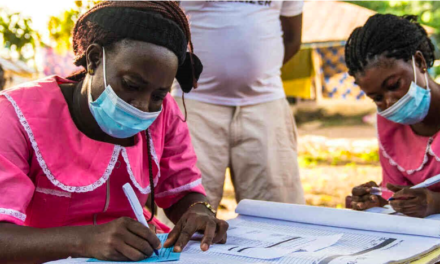In a significant nationwide study conducted by the University of Gothenburg, researchers have found that individuals who are fully vaccinated against COVID-19 experience a markedly lower risk of developing severe cardiovascular conditions associated with COVID-19 infection. This groundbreaking research highlights the critical importance of vaccination in mitigating the long-term health impacts of the virus.
The study, published in the European Heart Journal, analyzed data from over eight million adults in Sweden, tracking their health outcomes from the onset of the vaccination campaign in December 2020 until the end of 2022. The research focused on “risk windows,” which represent the period immediately following a COVID-19 vaccination dose, and compared the cardiovascular health of fully vaccinated individuals with those who had not received any vaccinations.
Findings on Cardiovascular Risks
The study examined various cardiovascular diseases, including myocarditis (inflammation of the cardiac muscle), pericarditis (inflammation of the pericardium), cardiac arrhythmia, heart failure, transient ischemic attack (TIA), and stroke. Remarkably, the findings indicated that for most outcomes, particularly the more serious conditions, there was a significant reduction in the risk of cardiovascular events post-vaccination. Specifically, the risk of cardiovascular complications was found to be 20-30% lower in vaccinated individuals compared to those who were unvaccinated.
However, the research also acknowledged some cardiovascular effects observed following individual doses of the vaccine. Notably, the study confirmed a temporary increase in myocarditis and pericarditis risk, particularly in young men, occurring one to two weeks after receiving a single mRNA vaccine dose. Additionally, there was a reported increase in extrasystoles (extra heartbeats) following the first and second doses—17% and 22% higher risks, respectively, especially among older males. Despite these findings, no significant increase in other severe cardiac arrhythmias was noted.
While the risk of stroke was lower among vaccinated individuals, the study did find a temporary increase (13% higher risk) in TIA following the first dose, predominantly affecting older men.
Protective Benefits of Full Vaccination
The research team, led by Professor Fredrik Nyberg and Associate Professor Yiyi Xu, along with contributions from cardiologist Mats Börjesson and infection specialist Magnus Gisslén, emphasized the protective benefits of full vaccination.
“The increases in cardiovascular risk we saw following COVID-19 vaccination are temporary and do not apply to more severe conditions,” said Professor Nyberg. “On the other hand, full vaccination significantly reduced the risk of several more severe cardiovascular outcomes linked to COVID-19, such as heart attack, stroke, and heart failure. This emphasizes the protective benefits of full vaccination.”
This study reinforces the importance of vaccination in not only preventing COVID-19 infection but also reducing the risk of serious cardiovascular complications, ultimately contributing to better health outcomes for the population. As vaccination efforts continue globally, this research serves as a reminder of the critical role vaccines play in safeguarding public health.











